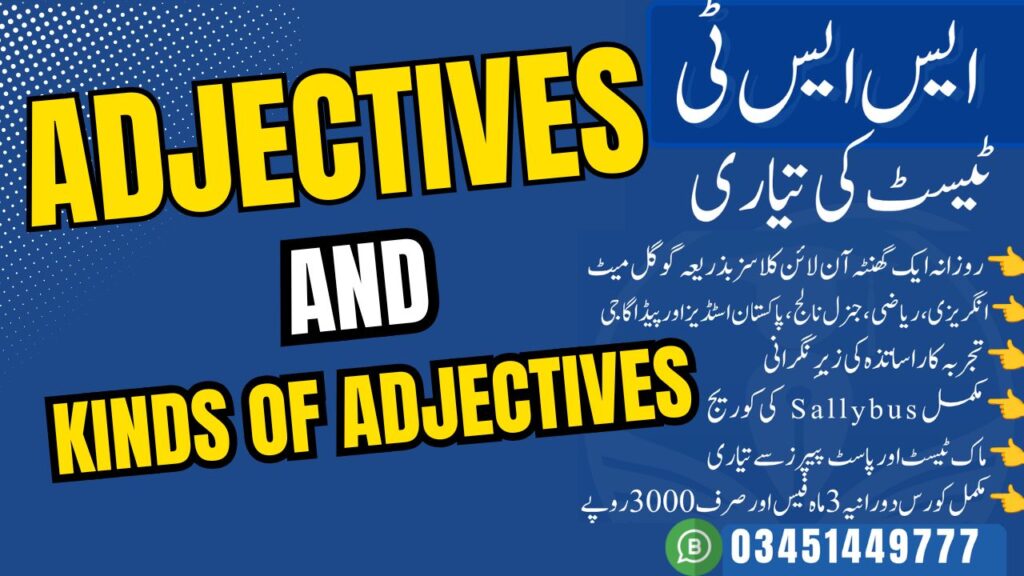The future perfect continuous tense describes an ongoing action that will continue until a specific point in the future, emphasizing the duration of the activity. The structure is subject + will have been + present participle (verb-ing). For example, “By 5 p.m., they will have been working for six hours” emphasizes the continuous nature of their work over a period of time.
Future Perfect Continuous Tense: Structure, Rules, Uses, Formula & Examples

The Future Perfect Continuous, also known as the Future Perfect Progressive, is a verb tense that describes an action that will be in progress over a period of time and will continue up until a specific point in the future. The action may have started in the past, may be happening in the present, or will start in the future, but the key is that its duration is measured from a future vantage point.
Grammatical Time Travel
Imagine you have a time machine. The Future Perfect Continuous Tense works by following these three simple steps:
- Set Your Destination: Choose a specific point in the future. This can be a time (like 8:00 PM tonight), a date (next December), or another future event (when you graduate).
- Travel to the Future: In your mind, travel to that future point. You are now standing in December, or it is 8:00 PM, or you are holding your degree.
- Look Back: From this future viewpoint, look back at an action that has been happening continuously up to this very moment. You are not just noting that the action happened; you are emphasizing how long it has been in progress.
Let’s see this in action:
- Future Point: Next month is your work anniversary.
- Action: You have been working at your company.
- Sentence: “By next month, I will have been working here for five years.”
This sentence projects to “next month” and looks back, measuring the five-year duration of the action “working”.
Why is it also called the Future Perfect Progressive?
In English grammar, the terms “Continuous” and “Progressive” are used interchangeably to describe actions that are ongoing or in progress. While “Future Perfect Continuous” is more common in British English resources, “Future Perfect Progressive” is frequently seen in American English guides. Both names refer to the exact same tense, with identical rules and functions.
Importance in English Grammar
While some sources note that the Future Perfect Continuous is a relatively rare tense, its importance lies not in its frequency but in its precision. It allows a speaker or writer to convey a complex temporal relationship that no other tense can express as effectively.
- Expressing Long-Lasting Future Actions: Its primary function is to emphasize the duration of a future action. This is crucial when the length of time is the most important part of the message. For example, celebrating a milestone: “Next week, we will have been dating for a year”. The focus is on the one-year duration.
- Applications in Academic and Professional Communication: In formal contexts, this tense adds a layer of sophistication and precision.
- Academic Writing: It is used to project the duration of studies, experiments, or research projects. For example, in a research proposal, one might write: “By the conclusion of the study in 2030, the team will have been monitoring the glacier’s retreat for two decades”.
- Professional Reporting: In business, it is used to report on long-term projects and forecast progress. For instance: “By the end of Q4, our engineers will have been developing the new platform for eighteen months”.
- Everyday Communication: In daily conversation, it helps to add context and emphasis to future plans and events, especially when discussing cause and effect. For example: “I’ll be exhausted when I get home because I will have been traveling all day”.
Form and Structure
The structure of the Future Perfect Continuous tense is consistent and follows a clear formula. Understanding this formula is the first step to using the tense correctly.
Formula
The basic structure for an affirmative sentence in the Future Perfect Continuous tense is:
Subject + will + have + been + Present Participle (verb-ing)
The Auxiliary Verb
The long string of auxiliary verbs—will have been—can seem intimidating. However, it is not an arbitrary rule but a logical “stack” of grammatical meanings that tells a story about time. Let’s deconstruct it:
- will: This is a modal auxiliary verb that firmly places the entire event in the future. It’s our time machine’s “on” switch.
- have: This auxiliary verb introduces the perfect aspect. The perfect aspect always connects two points in time, indicating that one action is viewed as complete in relation to the other. In this tense, it signals that the duration of the action will be complete by the future reference point.
- been + verb-ing: This combination is the hallmark of the continuous (or progressive) aspect. It signifies an action that is ongoing, in progress, and unfolds over a period of time.
So, the structure will have been V-ing logically combines these meanings: It describes an action whose duration (been + V-ing) will be complete (have) at a specific point in the future (will). Understanding this internal logic makes the structure easier to remember and apply correctly than simple rote memorization.
Sentence Structures
Here is a comprehensive breakdown of how to form affirmative, negative, and interrogative sentences, including common contractions used in spoken and informal English.2
| Form | Structure | Example | Contraction Example |
| Affirmative (+) | Subject + will have been + V-ing | They will have been traveling for a month. | They’ll have been traveling for a month. |
| Negative (-) | Subject + will not have been + V-ing | She will not have been studying for long. | She won’t have been studying for long. |
| Interrogative (?) | Will + Subject + have been + V-ing? | Will you have been waiting for an hour? | N/A |
| Negative Interrogative (?) | Won’t + Subject + have been + V-ing? | Won’t they have been working all day? | Won’t they have been working all day? |
| WH-Question (?) | WH-word + will + Subject + have been + V-ing? | How long will he have been driving? | N/A |
Functional Uses
The Future Perfect Continuous tense is used to perform several specific communicative functions, all related to the duration of an action viewed from the future.
1. Emphasizing the Duration of an Action up to a Point in the Future
This is the primary and most common use of the tense. The main purpose is to highlight “how long” an action will have been in progress by a future deadline or event.
- Example: “By six o’clock, I will have been waiting here for three hours.”
- Analysis: The important information is not just the waiting, but the three-hour duration of it.
- Example: “When I turn thirty, I will have been playing the piano for twenty-one years.”
- Analysis: This sentence emphasizes the long commitment to playing the piano, measured at the future milestone of turning thirty.
2. Showing Cause and Effect in the Future
This is a more advanced function where the continuous action is presented as the cause of a future state or event.
- Example: “Jamal will be tired when he gets home (future effect) because he will have been jogging for over an hour (cause).”
- Analysis: The prolonged action of jogging is the direct reason for the future state of being tired.
- Example: “Her English will be perfect when she returns because she will have been studying in the United States for two years.”
- Analysis: The two-year period of continuous study is the cause of her future language proficiency.
3. Predictions About Ongoing Situations
The tense can be used to make an educated guess or prediction about an action that is currently in progress and will continue into the future.
- Example: “Don’t bother the developers right now. At this rate, they will have been debugging that code for 48 hours straight by the time they finish.”
- Analysis: This is a prediction about the total duration of an ongoing, difficult task.
4. Applications in Storytelling and Academic Contexts
In more formal writing, this tense adds depth and context.
- Storytelling: It can be used to set a scene by describing the long-term background leading up to a pivotal future moment in a narrative.
- Example: “The prophecy foretold that by the time the chosen one returned, the kingdom will have been suffering under a curse for a hundred years.”
- Academic Writing: It is used to establish the context for future findings by highlighting the extensive period of prior research.
- Example: “By the time we publish our results, our lab will have been analyzing the genetic data for over a decade.”
Time Expressions Commonly Used
The Future Perfect Continuous tense rarely stands alone. It is almost always accompanied by time expressions that establish the future reference point and/or the duration of the action. Recognizing these signal words is key to understanding and using the tense correctly.
- By + [future time point]: This is one of the most common markers. It sets a clear deadline in the future.
- Example: “By next year, I will have been living here for a decade.” 4
- By the time + [clause in simple present]: This phrase sets a future event as the reference point.
- Example: “By the time you arrive, we will have been cooking for hours.”
- For + [period of time]: This is used to state the duration of the action.
- Example: “Next month, he will have been working here for ten years.”
- In + [time frame]: This specifies a future point when the duration will be measured.
- Example: “In November, I will have been working at my company for three years.”
- When + [clause in simple present]: Similar to “by the time,” this sets a future event as the reference point.
- Example: “When I finish this course, I will have been learning English for twenty years.”
- Since + [start point]: While less common than for, since can be used to mark the beginning of the action. It can sound slightly more formal or emphatic.
- Example: “When I leave work today, I’ll have been answering emails since 8 o’clock this morning.”
Timeline
One of the most effective ways to understand the complex relationship of time in this tense is to visualize it on a timeline. This mental map can make the abstract concept concrete and intuitive.
Imagine a line stretching from left (Past) to right (Future):
- The Action: Represented by the wavy line (~~~~~~~~~~~~~~), starts at some point (in the past, present, or future) and continues forward in time.
- The Future Reference Point: A specific point marked on the future part of the timeline (e.g., “Next Year,” “When she arrives”).
- The Duration: The length of the wavy line up to the future reference point. This is the period specified by phrases like “for five years.”
- The Perspective: Imagine standing at the “Future Reference Point” and looking backward along the wavy line. This is the unique viewpoint of the Future Perfect Continuous tense.
This visual model clarifies that the tense is not just about a future action, but about measuring the duration of that action from a future standpoint.
Rules and Patterns
While the Future Perfect Continuous has a complex meaning, its grammatical rules are surprisingly straightforward.
Subject–Verb Agreement
This is one of the easiest aspects of the tense. The auxiliary verb construction will have been is the same for all subjects, singular or plural. There is no need to change the verb form for subjects like he, she, or it.
- I will have been studying.
- He will have been studying.
- They will have been studying.
Dynamic vs. Stative Verbs
This is the most important rule to master. The continuous aspect of this tense requires a dynamic verb—a verb that describes an action, process, or activity that can happen over time (e.g., run, study, work, build, travel).
The tense cannot be used with stative verbs. Stative verbs describe a state, condition, sense, emotion, or possession that does not have a continuous duration in the same way an action does (e.g., know, believe, own, seem, love, understand). When you need to express the duration of a state up to a future point, you must use the Future Perfect tense instead.
This distinction is critical for correct usage.
| Incorrect (with Stative Verb) | Correct (with Future Perfect) | Reason |
| By next year, I will have been knowing her for a decade. | By next year, I will have known her for a decade. | Knowing is a state of mind, not a continuous action. |
| In May, we will have been owning this house for 20 years. | In May, we will have owned this house for 20 years. | Owning is a state of possession. |
| He will have been being a doctor for 15 years. | He will have been a doctor for 15 years. | The verb be is the quintessential stative verb. The Future Perfect form is used to express the duration of this state. |
Restrictions and Exceptions
- The be going to Form: It is grammatically possible to form this tense using am/is/are + going to have been + V-ing.
For example, “I am going to have been working here for a decade!”. However, this construction is extremely wordy, sounds unnatural, and is almost never used in either spoken or written English. For all practical purposes, learners should stick exclusively to the will formation.
- The Passive Voice: The passive form of the Future Perfect Continuous is will have been being + past participle. For example, “Next year the house will have been being renovated for 5 years”. This structure is grammatically valid but is so awkward and confusing that it is almost universally avoided. It is not recommended for use.
Common Errors
Navigating the Future Perfect Continuous tense can be tricky, but most mistakes fall into a few common categories. Here is a troubleshooting guide to help you identify and avoid them.
Error 1: Mixing up with the Future Perfect
This is the most frequent error. Learners use the continuous form when the focus is on the completion or result of an action, not its duration.
- The Mistake: “By Christmas, I will have been reading forty-five books.”
- The Correction: “By Christmas, I will have read forty-five books.”
- How to Avoid It: Before you write, ask yourself: “Is the main point how long the action took, or how many/much was completed?”
- If the answer is how long, use the Future Perfect Continuous. (…will have been reading for six months.)
- If the answer is how many/much, use the Future Perfect. (…will have read ten books.)
Error 2: Using a Future Tense in Time Clauses
A fundamental rule of English grammar is that future tenses are not used in clauses that start with time expressions like when, by the time, after, until, or as soon as. The simple present is used instead.
- The Mistake: “They will have been talking for an hour by the time Thomas will arrive.”
- The Correction: “They will have been talking for an hour by the time Thomas arrives.”
- How to Avoid It: Memorize the rule: No future in time clauses. The main clause uses the future tense, but the time clause uses the present simple.
Error 3: Incorrect Placement of “been” or “not”
The long chain of verbs can lead to confusion about word order, especially in negative sentences.
- The Mistake: “She will not been have working.” or “She will have not been working.”
- The Correction: “She will not have been working.”
- How to Avoid It: Remember that in a negative construction with will, the word not (or its contraction n’t) always comes directly after will. The structure is fixed: Subject + will + not + have + been + V-ing.
Error 4: When the Future Continuous is More Appropriate
If you are describing an action that will be in progress at a future moment but you are not emphasizing its duration, the simpler Future Continuous is often a better and more natural choice.
- The Situation: You want to say that when your friend arrives, you will be in the middle of cooking.
- Technically Correct but Less Natural: “When you arrive, I will have been cooking.” (This implies a focus on the duration leading up to the arrival).
- More Natural and Direct: “When you arrive, I will be cooking.”
- How to Avoid It: Only use the Future Perfect Continuous when you include a duration phrase (like for two hours) or when the duration is clearly implied and important to the context. Otherwise, the Future Continuous is likely the better choice.
Comparison with Other Tenses
Understanding the Future Perfect Continuous is as much about knowing when not to use it as when to use it. The clearest way to achieve this is by comparing it directly with the tenses with which it is most often confused.
Future Perfect vs. Future Perfect Continuous
This comparison highlights the crucial difference between focusing on a result versus focusing on duration.
| Feature | Future Perfect (will have + past participle) | Future Perfect Continuous (will have been + V-ing) |
| Main Focus | Completion & Result. The action will be finished. | Duration & Process. The action will have been ongoing. |
| Key Question Answered | “How much?” or “How many?” | “How long?” |
| Example (Work) | By the deadline, I will have written the entire report. (Focus: The report is complete). | By the deadline, I will have been writing this report for two weeks. (Focus: The two-week process). |
| Example (Travel) | By next year, she will have visited ten countries. (Focus: The result is ten countries). | By next year, she will have been traveling for three years straight. (Focus: The three-year journey). |
| Use with Stative Verbs | Yes. (By then, I will have known the truth.) | No. |
Future Continuous vs. Future Perfect Continuous
This comparison clarifies the difference between an action at a future moment versus an action up to a future moment. Think of it as the difference between a photograph (a snapshot in time) and a time-lapse video (showing progress over time).
| Feature | Future Continuous (will be + V-ing) | Future Perfect Continuous (will have been + V-ing) |
| Time Perspective | A snapshot of an action in progress AT a specific future point. | A measurement of the duration of an action leading UP TO a specific future point. |
| Analogy | A photograph. | A time-lapse video. |
| Example (Studying) | At 10 PM tonight, I will be studying for my exam. (This is what I will be doing at that exact moment). | By 10 PM tonight, I will have been studying for four hours. (This measures the duration up to that moment). |
| Example (Waiting) | When the train arrives, I will be waiting on the platform. (Describes the action at the moment of arrival). | When the train finally arrives, I will have been waiting for thirty minutes. (Emphasizes the duration of the wait before the arrival). |
Present Perfect Continuous vs. Future Perfect Continuous
This comparison shows how a simple shift in the time of perspective changes the tense. Both tenses focus on duration, but the reference point is different.
| Feature | Present Perfect Continuous (have/has been + V-ing) | Future Perfect Continuous (will have been + V-ing) |
| Point of View | Looking back from NOW (the present). | Looking back from a POINT IN THE FUTURE. |
| Function | Describes the duration of an action that started in the past and continues to the present. | Describes the duration of an action up to a specific point in the future. |
| Example (Living) | I have been living in this city for ten years. (The ten-year period is measured up to now). | By next May, I will have been living in this city for ten years. (The ten-year period is measured up to next May). |
| Example (Cause/Effect) | I’m tired because I have been working all day. (The work is up to the present moment). | I will be tired tonight because I will have been working all day. (The work will be up to the future moment of “tonight”). |
Examples and Practice
Theory is important, but practice is what builds mastery. This section provides extensive examples and exercises to help you internalize the Future Perfect Continuous tense.
Affirmative Sentences
- By 2030, we will have been living in this house for a decade.
- In an hour, he will have been playing video games for six hours straight.
- She’ll be an expert by then; she will have been practicing the violin for over 15 years.
- By the time the flight lands, they will have been traveling for 14 hours.
- Next week, I will have been working on this single project for a full year.
- By the end of the marathon, the runners will have been competing for over three hours.
- Come December, the committee will have been debating this issue for six months.
- When he retires, he will have been teaching at this university for forty years.18
- By midnight, the band will have been performing for the entire evening.
- In just one more month, you will have been studying English for two years.
- At 5 PM, I will have been waiting for thirty minutes.1
- By the time the server is fixed, users will have been experiencing outages for a full day.
- He’ll be exhausted because he will have been driving all night.
- By the end of the summer, I will have been saving money for five months.
- When she graduates, she will have been attending this college for four years.
Negative Sentences
- He will not have been working there for very long when the company closes.
- By 6 PM, I won’t have been studying for more than an hour.
- They will not have been dating for a full year by their anniversary.
- Don’t worry, we won’t have been waiting long by the time you get here.
- By the time the new policy is implemented, we will not have been following the old rules for long.
- She won’t have been living in Spain for a year when she moves back.
- By the deadline, the team will not have been testing the software for enough time.
- I won’t have been sleeping for long when my alarm goes off.
- By the time they finish the foundation, they will not have been building the house for even a month.
- He will not have been practicing the piano for long enough to play in the recital.
- We won’t have been hiking for more than an hour before we stop for a break.
- By the time the help arrives, the computer will not have been running for very long.
- She will not have been cooking all day, so the kitchen won’t be a mess.
- They won’t have been arguing for long before they make up.
- By the end of the week, I will not have been working on this task for even a day.
Interrogative Sentences
- Will you have been living here for ten years by next September?
- Will she have been working all day by the time we see her tonight?
- Will they have been driving for more than ten hours when they finally arrive?
- Will he have been studying long enough to pass the exam?
- Will we have been waiting for more than an hour by the time the show starts?
- Won’t you have been practicing for weeks by the time of the performance?
- Will the children have been playing outside all afternoon?
- Will the chef have been cooking since this morning?
- By the time I call, will you have been working on your homework for long?
- Won’t they have been building that bridge for over a year by the time it opens?
- Will she have been managing the team for five years by her next review?
- Will it have been raining for a full day by tomorrow morning?
- Will your parents have been traveling through Europe for a month by then?
- Won’t he have been feeling sick for a while before he finally sees a doctor?
- Will I have been talking for too long by the end of my presentation?
WH-Question Sentences
- How long will you have been studying when you graduate?
- By 2040, how long will they have been living in that country?
- What will she have been doing all day that will make her so tired?
- By the time he quits, where will he have been working for the past decade?
- Why will he have been ignoring your calls for a week by Friday?
Practice Exercises with Answer Keys
Part A: Fill-in-the-Blanks
Instructions: Complete the sentences using the Future Perfect Continuous form of the verb in parentheses.
- By this time next week, I _______________ (relax) on a beach for five days.
- He will be exhausted when he finishes because he _______________ (run) for over four hours.
- In November, they _______________ (build) that skyscraper for two years.
- How long _______________ you _______________ (wait) by the time I get there?
- She _______________ (not / practice) the guitar for very long when she has her first concert.
- By the end of the shift, the doctors _______________ (operate) for ten hours straight.
- When he turns 50, he _______________ (work) as a pilot for 25 years.
- We are late. By the time we arrive, the movie _______________ (play) for 20 minutes.
- Next year marks a big anniversary for them; they _______________ (live) in Canada for half a century.
- I _______________ (not / drive) for long when I run out of gas.
Part B: Multiple Choice
Instructions: Choose the correct verb tense to complete each sentence.
- By the end of the day, I _______ all the assigned chapters.
a) will be reading
b) will have read
c) will have been reading - At 8 PM tonight, don’t call me because I _______ dinner with my family.
a) will be eating
b) will have eaten
c) will have been eating - By the time she retires, she _______ thousands of students.
a) will be teaching
b) will have taught
c) will have been teaching - Next month, I _______ at this company for five years.
a) will be working
b) will have worked
c) will have been working - He will be tired because he _______ for hours.
a) will be training
b) will have trained
c) will have been training - By the time the concert ends, they _______ all their famous songs.
a) will be playing
b) will have played
c) will have been playing - This time tomorrow, we _______ over the Atlantic Ocean.
a) will be flying
b) will have flown
c) will have been flying - When you arrive, I _______ for you for over an hour, so please hurry!
a) will be waiting
b) will have waited
c) will have been waiting - By next year, scientists _______ a cure for that disease for more than a decade.
a) will be researching
b) will have researched
c) will have been researching - On our next anniversary, we _______ each other for twenty years.
a) will be knowing
b) will have known
c) will have been knowing
Part C: Error Correction
Instructions: Find the error in each sentence and rewrite the sentence correctly.
- By the time he will arrive, we will have been waiting for an hour.
- She will has been watching TV all day.
- They will have been owning that car for ten years next month.
- Will you have being studying for a long time?
- I won’t have been listen to the podcast for long when you call.
- By the time the meeting over, they will have been sitting since 9:00 am.
- He will have been knowing the secret for a week by tomorrow.
- How long will have you been working here by the end of the year?
- By this time next year, I will have learning English for five years.
- We will have been finished the project for two weeks by the deadline.
Answer Key
Part A: Fill-in-the-Blanks
- will have been relaxing
- will have been running
- will have been building
- will you have been waiting
- will not have been practicing
- will have been operating
- will have been working
- will have been playing
- will have been living
- will not have been driving
Part B: Multiple Choice
- b) will have read (Focus on result/completion)
- a) will be eating (Action in progress at a specific future time)
- b) will have taught (Focus on the result: thousands of students)
- c) will have been working (Focus on the five-year duration)
- c) will have been training (Explains the cause of being tired through duration)
- b) will have played (Focus on the result: all songs are finished)
- a) will be flying (Action in progress at a specific future time)
- c) will have been waiting (Focus on the duration of the wait)
- c) will have been researching (Focus on the decade-long duration)
- b) will have known (Stative verb ‘know’ cannot be continuous)
Part C: Error Correction
- By the time he arrives, we will have been waiting for an hour. (No future tense in time clauses).
- She will have been watching TV all day. (has is incorrect after will).
- They will have owned that car for ten years next month. (own is a stative verb).
- Will you have been studying for a long time? (being is the incorrect form).
- I won’t have been listening to the podcast for long when you call. (Incorrect verb form).
- By the time the meeting is over, they will have been sitting since 9:00 am. (Incorrect verb form in the time clause).
- He will have known the secret for a week by tomorrow. (know is a stative verb).
- How long will you have been working here by the end of the year? (Incorrect word order in the question).
- By this time next year, I will have been learning English for five years. (been is missing).
- We will have been working on the project for two weeks by the deadline. (finish is a verb of completion, not duration, and requires a different structure).
Future Perfect Continuous Tense Test No. 3 (100 MCQs)
By Arshad Yousafzai for all test Preparation
ZONE OF EDUCATION– Consultants & Academy
Address: Office No. 35 & 37, Sultan Tower, Makanbagh, Mingora, Swat, Khyber Pakhtunkhwa, Pakistan
Contact: 📞 0946-712777 | 📱 0341-4497777 | 📱 0301-1449777
Email: info@zoneofeducation.com
Website: https://zoneofeducation.com
🎯 Services:
- Study Abroad & Visa Consultancy (All European Countries, UK, USA, Canada, Australia)
- IELTS, PTE, TOEFL, Duolingo Test Preparation
- Research Proposal, Thesis, and SOP Writing Assistance
- GRE, GMAT, GAT, ETEA, HEC-ETS Test Preparation
Time Limit: 60 Seconds per Question.
Question 1 of 100
Score: 0
Test Complete!
You scored out of 100 questions correctly.







